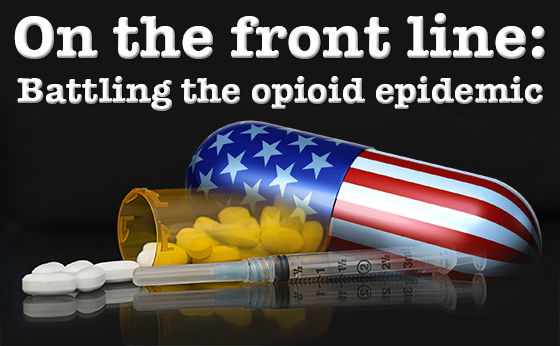|
January 2019
Battling the opioid epidemic: A roundup of recent news and information
 Suicide, overdose deaths continue to rise, USA Today reports Suicide, overdose deaths continue to rise, USA Today reports
Suicide and drug overdose rates continued to rise in 2017, driving the number of U.S. deaths to the highest total in more than 100 years, USA Today** reported on Nov. 29, 2018. The newspaper based it’s report on a series of reports from the Centers for Disease Control and Prevention. Here are some key statistics:
- Drug overdose deaths among U.S. residents exceeded 70,000 in 2017, nearly 6,600 more than in 2016, according to the CDC.
- In 2017, 47,000 people committed suicide, a rate of 14 per 100,000 people. That’s up from 10.5 in 1999. The total number of suicide deaths was the highest in a half century.
For more details on the CDC report, “Mortality in the United States, 2017,” click here.**
Pharmaceutical manufacturer exploiting opioid crisis, 60 Minutes reports
On Nov. 18, 60 Minutes** aired an investigative piece about the abusive pricing practices of pharmaceutical manufacturer kaléo Inc., which produces EVZIO®, an auto injector that administers naloxone during an opioid overdose. Kaléo has increased the price of the product by more than 600 percent since February 2016 amid the national opioid epidemic. America's Health Insurance Plans, a national association whose members provide coverage for health and health-related services, worked closely with the producers of 60 Minutes to provide extensive educational assistance about out-of-control drug prices, the role of insurance providers in making care and medications accessible, and insights into the relationship among pharmacy benefit managers, insurers and drug manufacturers.
Nearly 11 million pounds of pills collected during Drug Take Back Day
During the 16th National Prescription Drug Take Back Day on Oct. 27, the Drug Enforcement Administration and federal, state and local partners disposed of more than 900,000 pounds of potentially dangerous, unused prescription medications collected at nearly 6,000 sites across the country. These twice-yearly events play a key role in removing opioids and other medications from the country’s homes where they could be stolen or abused by family members and visitors.
As the state’s largest health insurers, Blue Cross Blue Shield of Michigan and Blue Care Network support these events in various ways: through blogs, Twitter chats and resources offered through its Opioids 101 site. Drug take-back events are part of a larger, corporatewide effort to battle the opioid epidemic.
The next Drug Take Back Day is April 27, 2019, so mark your calendar. But your patients don’t need to wait until then to dispose of unwanted prescription drugs. They can find a nearby drug disposal facility by using the DEA’s search tool** or Michigan OPEN’s Opioid Disposal Map.**
**Blue Cross Blue Shield of Michigan doesn’t own or control this website.
|

